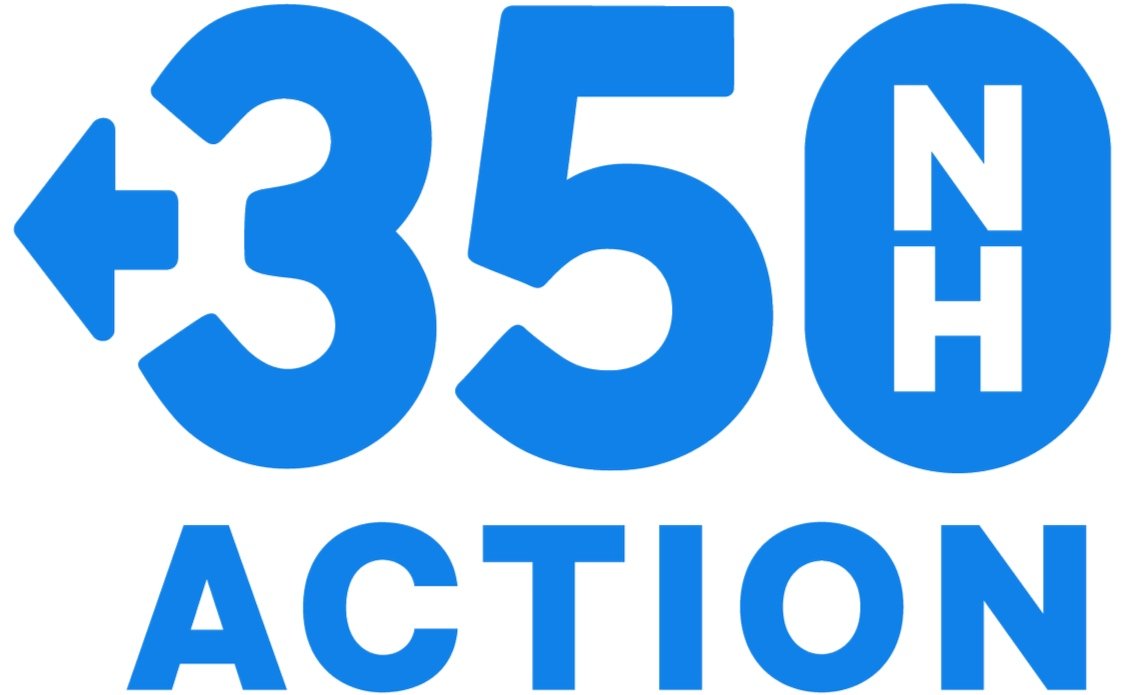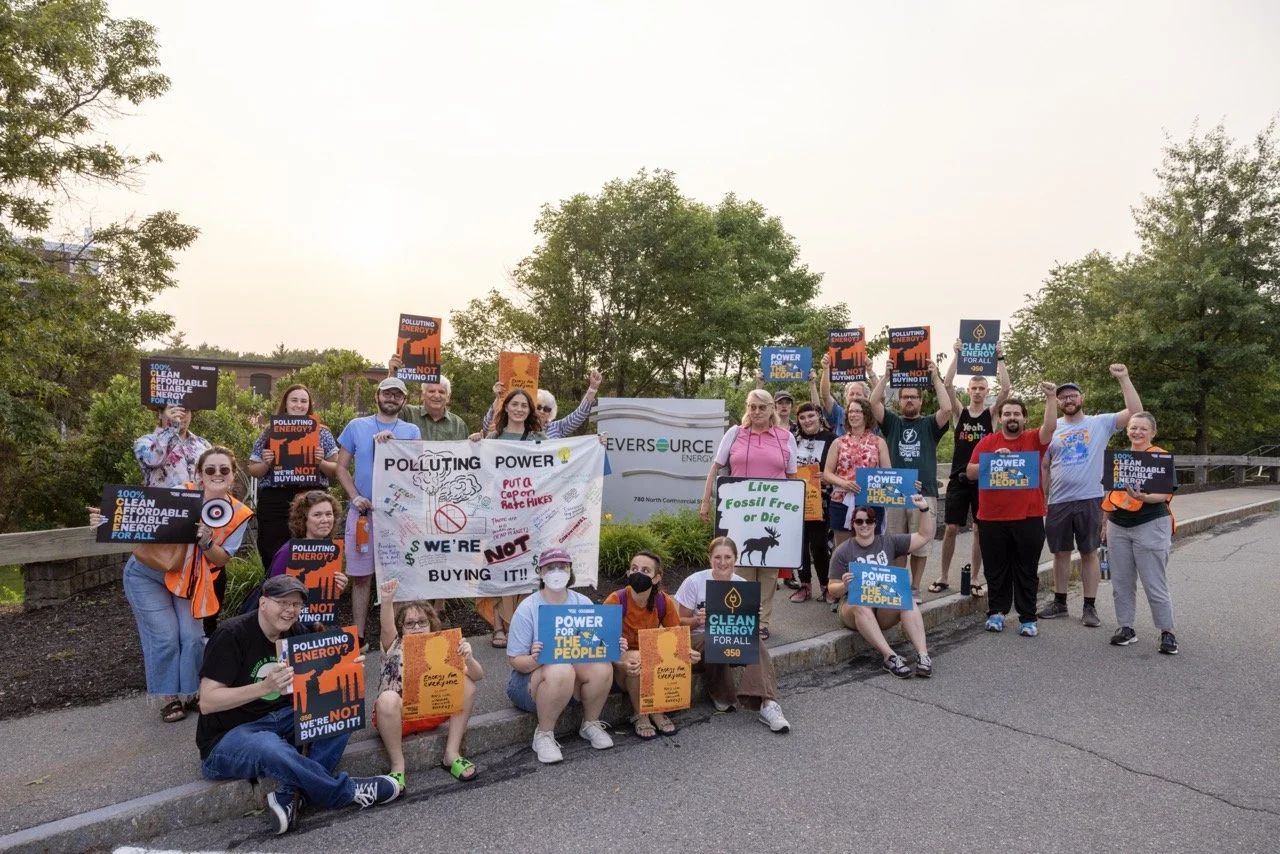Everyone deserves access to clean, affordable electricity.
Investor-owned utility companies are making record profits while our energy bills rise. These companies spend enormous amounts of money lobbying and donating to political candidates to slow down the transition to clean energy and protect their profits. We must hold utility companies, and the politicians who prop them up, accountable to us: the people who pay utility bills. We need a just energy system that is safe for our health and economy. We are advocating for community power programs, policy changes, and clean energy projects that prioritize ratepayers across New Hampshire.
Overview
Our Campaign
350NH fights for energy justice! We passed community power programs across the state, canvassed to educate our neighbors about this issue, and fought for legislation that protects ratepayers from extreme price hikes. We are working alongside a national coalition of 350 organizations to change the narrative about utilities. It’s time that our utility companies work for us.
Why it matters
-
Electricity can be expensive. When rates spiked in 2022, a record number of households had to apply for electric assistance, and not enough of them received help. The fluctuating costs of fracked gas, and utility companies’ willingness to throw ratepayers under the bus is making our energy more unaffordable. With community power programs and better energy policy we can work to make energy more affordable for everyone.
-
More community power programs and more local renewable energy projects will increase our energy independence as municipalities and as a state. Together we can decrease our reliance on imported fracked gas and prevent future power outages by localizing our energy grid (for example, with microgrid resources).
-
Our investor-owned utility companies are deeply entwined with fossil fuels. Eversource, Enbridge, and other companies in this business make more money when they build things like pipelines - they will continue to do so at the expense of our climate and our wallets. We must change how our utility companies operate to stop this trend from continuing.
-
Many of our politicians are bought out by fossil fuel and investor-owned utility companies, which has led to inaction on climate across the country. We need to kick fossil fuel money out of our politicians pockets in order to get the changes we need to have a safer, cleaner, more democratic energy system.
Join a Working Group!
What is community power?
Community Power is the bulk purchase of electricity, saving ratepayers money and expanding energy choices.
Community Power is authorized in New Hampshire under RSA 53-E - Aggregation of Electric Customers by Municipalities and Counties. There are a series of steps for a Community Power program to be developed, approved, and launched.
Step 1: Form a Committee and Develop your Energy Aggregation Plan.
The first step is for a Governing Body (e.g., select board) to establish a Community Power Committee to create an Electric Aggregation Plan detailing the structure and goals of the program. The Community Power Committee may be a subcommittee of an existing committee. The Committee must hold public hearings on the plan to collect public input.
Step 2: Local Legislative Approval and State Approval of Community Power Plan.
The next step is to get local legislative authorization through Town Meeting or City/Town Council approval and adoption of the Community Power Plan. Community Power plans must also be reviewed and approved by the Public Utilities Commission.
Step 3: Contract with a Service Provider and Launch the Program
There are several Community Power service providers in New Hampshire. These providers are available to support communities through out all steps of the process. Once you have local and state approval, your Governing Body can contract for services to launch and operate the Community Power program.
Resources:
FREQUENTLY ASKED QUESTIONS
-
Energy Justice aims to make energy accessible, affordable, clean, and democratically managed for all communities. It acknowledges that low income communities are hit the hardest with price fluctuations and prioritizes those communities when coming up with energy solutions.
-
No. Renewable energy prices are decreasing while coal, oil and fracked gas get more expensive (source). New Hampshire lacks renewable energy infrastructure, so we could reduce our electricity costs by expanding renewable energy.
-
Our utility companies are deeply entwined with fossil fuels. Eversource, Enbridge, and other companies in this business make more money when they build things like pipelines - so they will continue to do so at the expense of our climate and our wallets. Ratepayer-funded subsidies mostly go to fossil fuels in New England.
-
We will have higher costs to pay as the climate crisis gets worse. Increased natural disasters and bad weather will lead to more costly and catastrophic damage.
-
Electric bills will continue to arrive from Eversource, Liberty Utilities, or NH Electric Co-op. Community Power would not change your town's relationship with Eversource or other utilities. In a Community Power scenario, Eversource (or your other utility company) would continue to maintain the poles and wires that bring our community electricity.
-
-
The Electric Assistance Program through the Community Action Agencies - Assistance by county/city helps low-income and moderate-income residents with paying electricity bills and weatherizing their residences. NH Saves provides support for weatherization and energy efficiency programs for businesses and middle- and high-income residents and can be another resource to reduce your energy costs.
-
Push for them to sign the No Fossil Fuel Money pledge and refuse campaign contributions from Eversource, Liberty, Unitil, or their lobbyists. Educate them on why this is an important issue to you.


